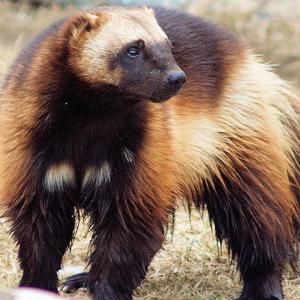NC CASC Webinar Series: Will there still be snow in wolverine denning habitat in the 2050s? High resolution projections for two study areas in the Rocky Mountains
Date
Thursday, November 12, 2020, 11am MDT
Presenters:
Joseph J. Barsugli (Cooperative Institute for Research in Environmental Sciences, University of Colorado Boulder, Boulder, CO; NOAA Physical Sciences Laboratory)
Stephen Torbit (United States Fish and Wildlife Service, Lakewood, CO - retired)
John M. Guinotte (United States Fish and Wildlife Service, Lakewood, CO)
Abstract:
Persistent spring snowpack has been proposed to be an important factor to determine suitable habitat for wolverine, particularly for denning by pregnant females, based on correlative studies from the northern Rocky Mountains. Reduction in deep snow for denning resulting from climate change was cited in proposals to list wolverine under the Endangered Species Act (ESA), and in subsequent litigation to force a listing under the ESA and a federal court agreed this component was a significant factor for the Fish and Wildlife Service to consider. An earlier climate change assessment had revealed significant loss of snowpack in the future in lower elevations in the Rocky Mountains, but the spatial resolution of modeling mountain snowpack was coarse enough to have limited value for assessing impacts on a scale relevant for wolverine conservation. We modeled the future impacts of climate change on persistent snow in occupied and historical wolverine habitats at a 250 meter resolution in order to explicitly understand the effects of topography, slope and aspect on snow cover persistence. We then compared those snow cover projections to existing data on known wolverine den locations and potential wolverine denning locations in the two study areas. The results demonstrate significant retention of snow cover at higher elevations within documented and predicted wolverine denning habitat in both study areas. We project persistent spring snow cover is significant, abundant, widely dispersed and available for wolverines across both study areas, and across several climate scenarios for the mid 21st century.
Registration link: Register in advance for this webinar:
https://cuboulder.zoom.us/meeting/register/tJIkcOGspzoiG9TG3c8mYfsU4X1-1tG-qxEM
After registering, you will receive a confirmation email containing information about joining the webinar.


